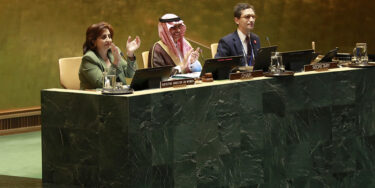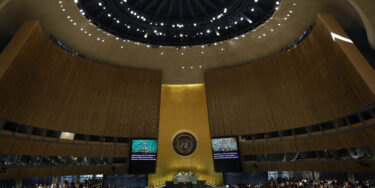Counter-Terrorism Committee: Addressing the Role of Women in Countering Terrorism and Violent Extremism
17.09.15
The UN Security Council’s Women, Peace and Security Agenda (WPS) has become the dominant discourse framing women’s engagement in international affairs over the past fifteen years.
It has also marshalled the ways in which women are both made visible by and remain invisible in security conversations by key institutional actors such as the United Nations.
In this same period, following the events of 9/11, states have brought new urgency and vibrancy to their action in the realm of counterterrorism. Indeed, creating and bolstering new international security regimes constitutes the bulwark of states’ normative actions in the international sphere. This international security system was ushered in by United Nations Security Council Resolution 1373 and the creation of the UN Counter-Terrorism Committee (CTC), in conjunction with European Union Regulations on Combatting Terrorism. Both the EU and UN’s approaches had antecedents during prior decades of patchwork multilateral terrorism conventions and resolutions but their scope, content, and institutional power has risen considerably in the world we inhabit after 9/11.
State momentum stemming from the priority accorded to addressing international terrorism is illustrated by both the response of national legal systems and by more concerted efforts to achieve multilateral and multilevel counterterrorism efforts on the international plane. The central institutional legacy of that urgency is the CTC. Yet, by and large, the WPS agenda has been excluded from any meaningful engagement with the CTC since its creation. The result is that the WPS agenda has been not only normatively limited in its reach, but distinctly and institutionally peripheral in some of the key security and conflict discussions of the past decade plus.
By Fionnuala Ní Aoláin
Read the full article on the Just Security website



